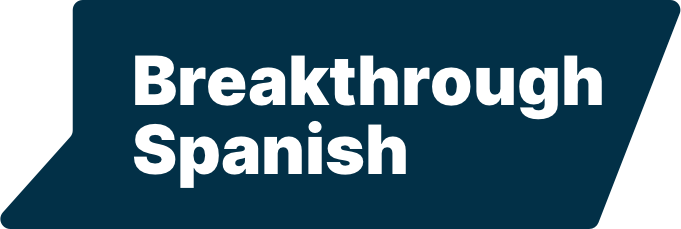Learning a foreign language has little to do with how smart you are and a lot to do with how consistent you are, how good your reasons are, and how you choose to learn.
The premise of this blog is that languages are worth learning and using because they are a tool for good.
Good for you because they are rewarding, fascinating, and exercise your brain. Good for your community because they help you be more engaged with people and places outside your bubble.
My goal in writing this is to:
- Spark, re-spark or encourage your interest in foreign languages
- Help you learn to communicate with confidence in a foreign language
- Share my interest in dialects, accents, and the history of languages
This blog is going to cover things like:
- Making language learning a part of your daily routine
- How to choose which language(s) to learn
- Finding the right strategies for you (strategies that don’t involve waiting 2 years to learn the past tense)
- Using your foreign language skills to make your corner of the world a better place
- Improving your pronunciation in any language
But first I want to start by convincing you why I think you should learn a language.
How you benefit from speaking a foreign language
When I was 18, I stayed with a host family on Easter Island for 3 weeks. One day, a guest at my host family’s bed & breakfast got sick and needed an ambulance ride.
She only spoke English, and I was the closest person who could speak English and Spanish, so the EMTs asked me to jump in to interpret.
I explained the woman’s symptoms to the EMTs in Spanish, and later, the doctor’s diagnosis to the sick woman in English.
I chatted with the staff and got to know them a bit.
Then I left the hospital, went to the bar, and got sucker punched by a scuba instructor who turned out to be dating the girl I was dancing with.
The next day, with a fresh black eye, I went with my host family to the beach.
On the way back, I was in the back seat of their Rav4 and we flipped going 60 mph. There were 7 of us in the car, and 3 flew out the windows. Incredibly, no one died.
When the ambulance arrived, the same EMTs from the night before were on duty, but this time I was the one in the stretcher.
They examined the gash in my head, my bruised neck, and my left hand, which had lost most of its skin to road rash. They checked out my black eye from Scuba Steve and assumed it was also from the wreck. But I explained to them that no, in fact I’d just had a really shitty 24 hours.
Then we all had a good laugh, and for the 30 minute ride to the hospital, they helped me not think about the trauma of the wreck.
Point of this story is: knowing Spanish, I was able to make an awful situation a little better because I was able to relate to the people around me.
Without Spanish, I would have had no one to talk to for 3 days in the hospital, forced to mime with one arm, an IV, and a neck brace.
You will hopefully never find yourself in a situation like that.
But you are likely to be in a situation where being able to relate to other people will make life noticeably better.
Situations like: travel, moving abroad for work or study, communicating with your in-laws, working with international coworkers, volunteering with new immigrants to your area, and so many more.
English-only is logical, but less rewarding
The first book I ever read on language learning, How to Learn Any Language by Barry Farber, starts with this joke:
“What do you call a person who speaks two languages?” – “Bilingual”
“What do you call a person who speaks three languages?” – “Trilingual”
“What do you call a person who speaks four languages?” – “Quadrilingual”
“What do you call a person who speaks only one language?” – “An American”
It’s no secret that English speakers are often monolingual. It’s also not a surprise, either.
I actually think it’s logical that most native English speakers only speak English.
We can get by almost anywhere with just English, and kids all over the world are learning English in school and getting better and better at it.
On top of that, it’s common in many international cities and social circles for English to be the lingua franca, even between speakers of two similar languages, like German and Dutch.
Not to mention, traditional language instruction is more focused on verb tables and exam prep than communicating with other human beings.
When something takes a lot of time to pay off, and requires spending months sounding like a child, it’s a big ask.
But that’s exactly why it’s worth doing.
The most rewarding things take time
Think about a skill you’ve developed. Woodworking, basketball, drawing, cooking, anything.
Over time, the tricky parts became muscle memory, and you became proficient. There’s satisfaction in that proficiency, because of the work you know you put in to reach it.
We appreciate and enjoy things we have to work for.
When you start to learn a language, it’s the same thing.
You’ll spend months learning, feeling slow in your progress. You’ll experience little wins and frequent frustrations (“why can’t I remember how to say ‘consider’!?!”).
Then one day you’ll be talking to someone in Spanish or Chinese and the words will just come out without any effort. It’s the coolest feeling in the world.
My favorite book on Spanish, Breaking Out of Beginner’s Spanish, puts it this way:
“The information is oozing in and assuring itself a place, and one day it will suddenly be available and act as if it had been there all along. So stick with it. The day will come.”
– Joseph Keenan
The most rewarding things in life become more rewarding over time. Language learning is one of those things.
Get started learning a new language
When you learn a new language, you get access to a new ecosystem of culture, music, ideas, expressions, and a new perspective on how other people view the world.
In short, you can relate to others better.
You’ll never learn every language, and you don’t need to. That’s not the point.
The point is that by learning one new language, you get the reward of a new perspective on the world and contribute to a climate of understanding.
I don’t hold anything against people who decide not to learn one. It’s a huge commitment to learn (not dabble), and everyone has to prioritize.
But the more people who take the time to learn someone else’s language, the more people there are who understand what it’s like to struggle to communicate and be foreign, which is always good.
So if you’re considering it, give it a shot. You won’t regret it.
To get started today, the first thing you need to do is decide which language you want to learn. The second step is make a plan.


